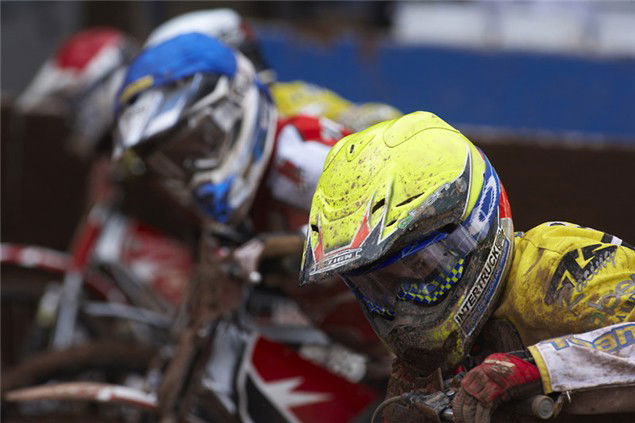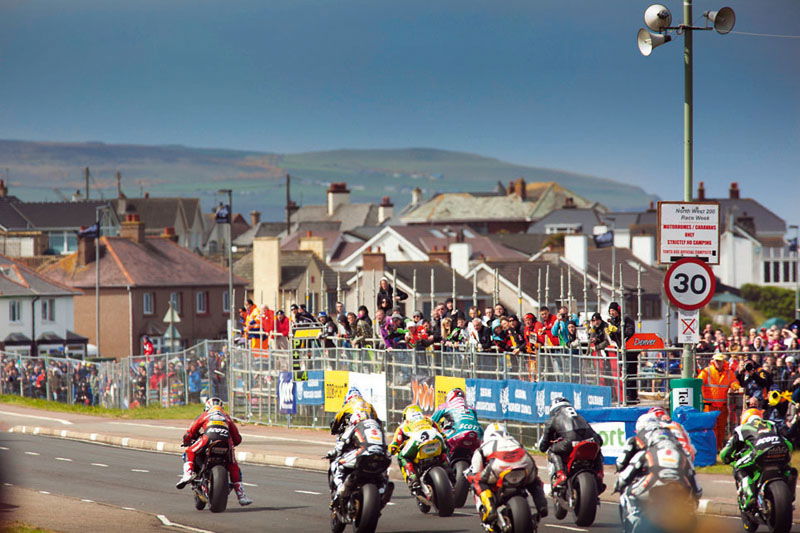Shale of the century: This is speedway…
It used to be as big a sport as football in the seventies then faded away to near total obscurity as property developers bought up the valuable city stadia of struggling teams. It hit the TV screens again in the noughties and staged a notable recovery


We’re trackside, well, start-lineside, to be more accurate. Coventry Bees versus Peterborough Panthers, at home in Peterborough. It rained hard last night and the grass in the infield is moist, to say the least. Therefore the track is wet – and very tricky.
This is heat one of a 15-heat event and the tension and expectation is palpable. The packed grandstand locks its eyes onto the grid where two Peterborough riders face-off two Coventry challengers. The tape gate is lowered, riders paddle their bikes forward, the starter lifts both his arms and walks swiftly to the back of the grid. This is it. Revs rise to a valve-bouncing 13,000rpm and, TWANG! They’re off.
Just a few yards in and there’s some contact, elbows, a wobble and BANG! It’s all over as a young German rider pummels into the air fence and his bike cartwheels over the barriers into the crowd. Thankfully, it’s a miss on the crowd front. There’s a lot of running and dodging though.
I know that conditions are tricky because our guide, World Champion and ex-Panthers rider Sam Ermolenko, told us five minutes previously. Wet shale makes the track not only tricky to predict but unless you holeshot each race, it makes visibility nigh-on impossible as riders cop for a face-full of soupy red mud. But I hadn’t expected the first race of the day to be red-flagged after just four seconds.
Speedway is always an explosion of action. I guess that’s its appeal, so why aren’t there more bikers in the audience? We shift our gazes from the paramedics working busily trackside back to the grandstand. There are more women and children in the crowd than men. There’s even an enthusiastic border collie watching all the action and you can bet he doesn’t ride a bike.
“That’s a shame,” says Ermolenko in his Californian drawl. “That kid’s a bit out of his depth I think, I hope he’s OK though.”
Christian Hefenbrock is having a bit of a bad day and isn’t OK. He’s managed to slide under the air fence at 70mph and is taken to hospital with a suspected broken ankle.
“That bike will be wrecked now.” Sam shouts over the din of the reforming grid. “They’re really lightweight frames and are designed to bend and flex so any impact like that will have ruined the chassis.” Make that a really bad day.
These bikes cost around £4000 each. On top of that you’ll probably spend a quarter of that again on a sweet engine build, an up-market clutch assembly and maybe a better ignition unit. Most riders have two bikes each, some three.
That might sound excessive but consider the facts: three of these speedway bikes will still cost less than a pair of Öhlins inverted gas-cartridge forks.
The money in speedway is better, too. Top riders will be trousering a couple of grand from one two-hour race meeting, many race twice in one day. The very top riders are earning upwards of £200,000 a year. A far cry from the £30,000 salaries in the 2010 BSB series.
In heat nine, we’re treated to a stunning four-lap display of standout riding by the Coventry winner Rory Schlein. But Sam sees it differently.
“If I was Coventry’s team manager I’d kick his ass.” Sensing the bemused expression on my face he elaborates; “He rode for himself and himself only. He could have helped his team mate get second rather than gifting those points to the Peterborough rider who finished second. All those people in the grandstand filling in their programmes know that, too.”

